As an officer, your career is full of opportunities.
When you graduate from college as an Army ROTC Cadet, you will earn the rank of Second Lieutenant. Your career as an Officer will be just beginning, and you’ll find a variety of interesting Officer career fields in the Army.
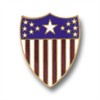
Adjutant General’s Corps
The Adjutant General officer’s job is to plan, develop, and direct systems for managing the Army’s personnel, administrative, and Army band systems.

Air Defense Artillery
Air Defense Artillery Officers lead, train, and employ Air Defense forces in support of military operations, primarily against enemy aircraft and missile attacks.
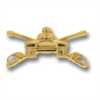
Armor
The Armor/Cavalry Officer commands, directs and controls armored and/or combined arms organizations during mobile land combat operations.
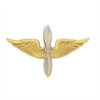
Aviation
The role of an officer in this branch is to direct and coordinate the employment of Army Aviation units in support of land combat operations.

Chemical Corps
In the Chemical Corps, Officers support the Army by providing expertise concerning all aspects of chemical, biological, and nuclear defense and chemical operations to commanders and staffs at all levels.
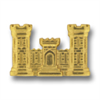
Engineers
The Engineers train and lead troops in topographic, construction engineering operations, facilities maintenance, civil works programs, and lead engineer troops in infantry combat operations.
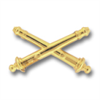
Field Artillery
In Field Artillery, officers coordinate for and employ Field Artillery and target acquisition means in support of military operations.
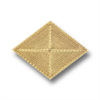
Finance Corps
Finance provides the essential professional analysis of financial data necessary for the efficient use of the Army’s money, material, and personnel resources.
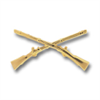
Infantry
To lead, train, and employ mechanized, airborne, air assault and light infantry and combined arms forces in military operations on land.
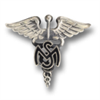
Medical Services Corps
Medical Services officers provide administrative management and support of the Army’s health services systems.

Military Intelligence
The Army’s military intelligence is responsible for all collected intelligence during Army missions. They provide essential information that often save the soldiers fighting on front lines. Military Intelligence officers can specialize in a variety of fields such as imagery, human intel, signal intelligences, etc.
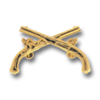
Military Police
To train and lead combat-ready Military Police forces that can expedite the battlefield movement of critical Army resources and achieve tactical success in rear area operations. In the peacetime garrison environment, plan and supervise the disciplines of law enforcement, crime prevention, criminal investigation, physical security and confinement.
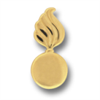
Ordnance Corps
Ordnance officers develop, produce, acquire and support weapon systems, ammunition, missiles, and ground mobility material during peace and war in order to provide combat power for the U.S. Army.
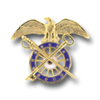
Quartermaster Corps
A Quartermaster officer plans and directs the acquisition, receipt, storage, preservation, and issue of equipment, repair parts, construction material, subsistence, petroleum products, water, and other general supplies.
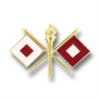
Signal Corps
Signal Corps Officers provide rapid and reliable-information systems to support command and control of the Army’s combat forces during both peace and war.

Transportation Corps
Transportation officers procure, provide, arrange or manage all surface transportation assets required to support and sustain the Armed Forces in peace and war.
